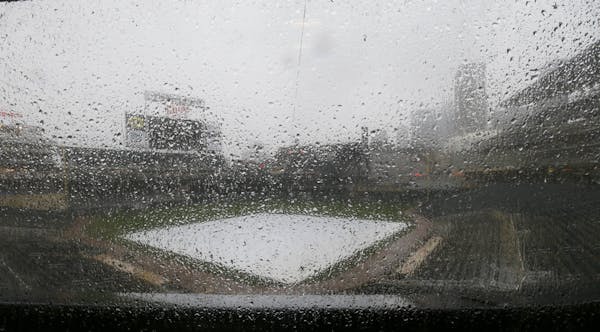A gentleman of my acquaintance has a considerable investment in the Twins, and this refers to both his emotions and his dollars. If you want to get him worked up, mention the fact that Torii Hunter was in town, once again playing for an American League team other than the Twins.
"That's when it all went off the rails — when they didn't sign Torii," he will say, with a couple of adjectives tossed in.
The Twins front office would refute this by pointing out that, in the three seasons following Hunter's departure, they lost a Game 163 vs. the White Sox to decide the AL Central (2008), they won a decisive Game 163 vs. the Tigers (2009), and they opened Target Field (2010) by cruising to their sixth division title of the decade.
And the counter to that is if management had chosen to make Torii a Twins lifer, as his performance and popularity dictated, several of the issues that plunged the team into the worst three-year run (2011-13) in franchise history would not have occurred.
What remains a mystery is why the Twins didn't act early and get Hunter signed in the closing days of the 2006 season. The Legislature had approved the new ballpark on May 31, 2006, and long-term deals were doable.
The argument that there's no way the Twins would match Hunter's five-year, $91.5 million deal with the Angels signed in the November 2007 is accurate — and also meaningless.
If the Twins had acted quickly in the fall of 2006, with Hunter a year away from free agency, the 31-year-old would have run up the Metrodome steps three at a time to sign a deal for $15 million a year.
Once he had a look at free agency in 2007, after a season in which he hit 28 home runs and drove in 107 runs, the good ship Hunter had sailed.
Johan Santana was a year away from free agency in the winter of 2007-08. That's another apology you hear for not signing Hunter: The Twins couldn't pay Torii in the fall of 2006, because they still were hoping to sign Santana.
The truths were the Twins could have signed Hunter, one of the best outfielders in the American League, and they never had a chance to meet the contract demands of the agents for Santana, the best starting pitcher in the American League.
Also: When making a choice, give the long-term deal to a star position player over a star pitcher. The risk on a position player might be 20 percent of what it is for a starting pitcher, as the New York Mets discovered with Johan.
Maybe it was that Torii would be 32 at the start of long-term contract in 2008?
Answer: Know your players. Hunter was an athletic masterpiece when he debuted in August 1997 — and unless he's visited by misfortune, he will still be that way when collecting his pension.
Maybe it was because the Twins had Denard Span on the way to play center field? Hardly. Span had completed his second year at Class AA New Britain and was merely a big-league suspect in the fall of 2006.
Hunter wound up signing his deal with the Angels on Nov. 22, 2007. Six days later, there was a trade with Tampa Bay with starter Matt Garza going to the Rays for outfielder Delmon Young. This disaster was based on a desire to replace Hunter's righthanded power.
Then, on Feb. 2, 2008, they traded Santana to the Mets with Carlos Gomez as the main return. Reason: They needed a center fielder to replace Hunter.
When it turned out Gomez wasn't nearly big-league ready as a hitter, the Twins were too embarrassed by the paltry return for Santana to send Go-Go to the minors to work toward an effective approach at the plate.
We could go on endlessly over the mess-ups on Gomez, and then J.J. Hardy, and the vacuums that still exist in center field and at shortstop, but the bottom line is that the gent mentioned above — Twins fan and Torii loyalist — remains correct:
If Torii, now 38 and playing right field for the Tigers this weekend, had been targeted to be a Twins lifer by management, the disaster in the clubhouse and on the field the past three seasons would have been more like Three Mile Island rather than the baseball equivalent of Chernobyl.
Patrick Reusse can be heard 3-6 p.m. weekdays on AM-1500. preusse@startribune.com

Reusse: How bad are the White Sox? They made Twins look good.

Reusse's Tortured Columnist Department update: Yes, Vikings won the offseason

Reusse: Wolves need stopper for Booker? NAW, it's not a problem.

Reusse: Success on court helped Timberwolves do strong business


